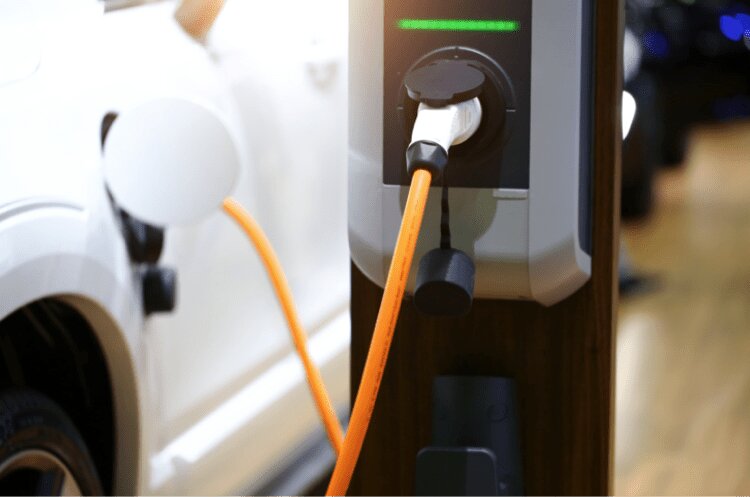
June 17, 2022
U.S. Readies to get Wired for the EV World
Now that the ink is drying on the infrastructure law, Washington is getting ready to roll out charging stations for electric vehicles, says Mike Szudarek, automotive practice lead at Detroit Public Relations firm Marx [...]

Now that the ink is drying on the infrastructure law, Washington is getting ready to roll out charging stations for electric vehicles, says Mike Szudarek, automotive practice lead at Detroit Public Relations firm Marx Layne & Company.
The project will cost $5 billion and be rolled out over five years. States looking to access funding must submit an EV deployment plan to the newly created Joint Office of Energy and Transportation. Michigan stands to gain $16.2 million to develop alternative fuel corridors. The infrastructure law aims to have 500,000 charging stations by 2030 and reduce transportation-related greenhouse gas emissions to net-zero by 2050. States must submit their plans no later than Aug. 1, 2022. If plans are approved, state departments of transportation will start deploying EV charging stations.
The ideal ratio of EVs to charging stations is 40 Level 2 ports per 1,000 EVs. Currently, there are 41 Level 2 charging ports per 1,0000 EVs.

As of Sept. 2021, there were 2,147,070 EVs with 113,307 charger ports. EV critics say they are concerned the grids in the nation won’t be able to handle charging them. However, that’s assuming that every EV would be charging simultaneously — the chances of that are nonexistent. In 2020, there were 286.9 million cars in the U.S.
The U.S. grid had 1,117.5TW of electric capacity and 27.7GW of solar, according to the U.S. Energy Information Administration. If all the EVs were charging at 7kW, the grid would need 2,008.3TW, nearly twice the size of the current grid.
While EV sales continue to climb in the U.S. and parts of Europe, the transition to electric isn’t going to happen quickly. For example, battery-electric vehicles are now 10% of the market in the U.K.
Research is being done to increase the range of EVs and speed up charging time. A typical EV can go about 250 miles on one charge. Researchers at Purdue University have made a breakthrough in electric car charging. Engineers have invented a cable that can charge a vehicle in under five minutes. The cable has a cooling system that allows it to accommodate a higher current. Newer EV models like the Tesla Model S can go as far as 405 miles on a single charge. Mercedes unveiled an all-electric car at the Consumer Electronics Show. Its range? A whopping 648 miles. It’s predicted there will be more charging ports than gas stations, as gas stations have been declining over the past two decades.
Companies are beginning to get on the charging bandwagon. Choice Hotels International will be installing chargers at certain properties. Also, 7-Eleven said it plans to install 500 charging ports by the end of the year.
Communities are starting to prepare for an EV world. The city of Orlando announced that 100 percent of its fleet will be powered by alternative fuels by 2030. In Boston, any new construction requires that 5 percent of parking be equipped with EV chargers. New York City said it plans to convert the public bus system to electric by 2040.
Share This Story, Choose Your Platform!
Marx Layne is your competitive advantage.
Your reputation and success are our only concerns.
